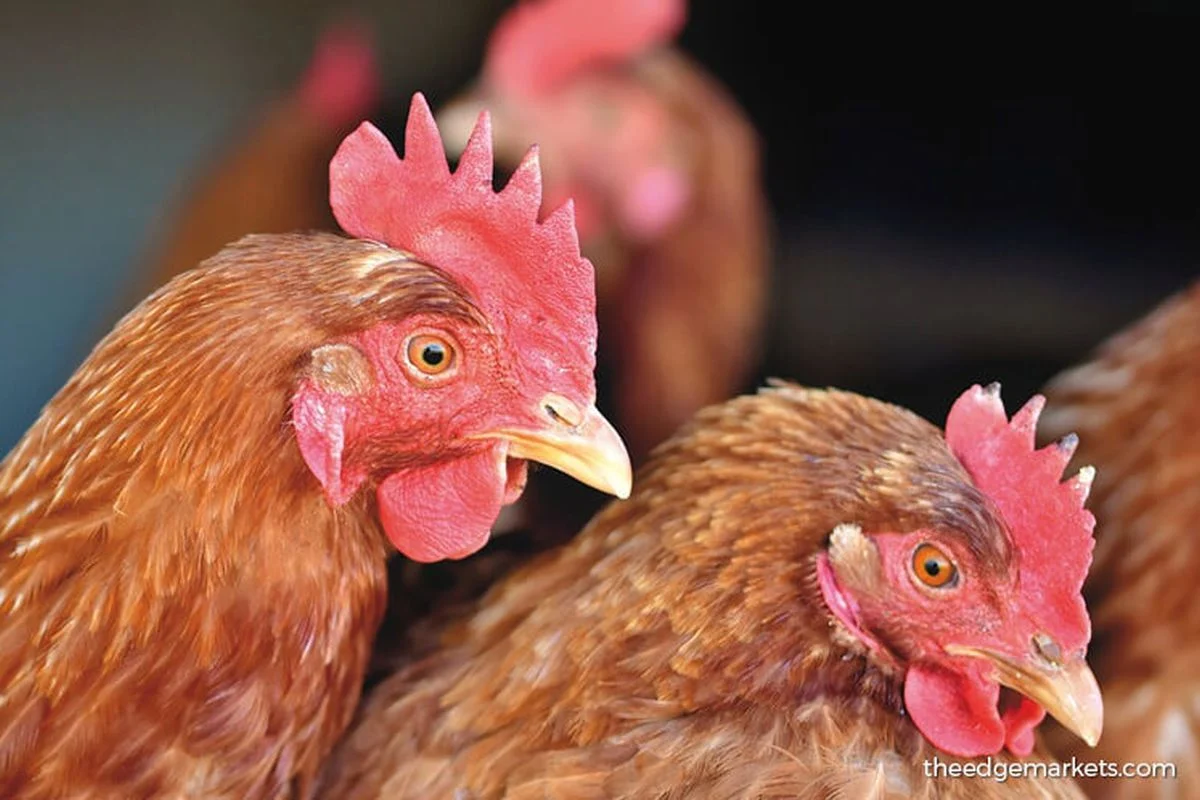Whole chicken imports up by 80% in June
 Whole chicken imports rose by 80% in June to 471 metric tons compared with 258 metric tons in May following the abolishment of approved permits (AP) and suspension of permit fees last month.
Whole chicken imports rose by 80% in June to 471 metric tons compared with 258 metric tons in May following the abolishment of approved permits (AP) and suspension of permit fees last month.
在上个月取消批准的许可证 (AP) 和暂停许可证费用之后,6 月份整只鸡的进口量从 5 月份的 258 吨增长了 80% 至 471 吨。
Agriculture and Food Industry Minister Datuk Seri Dr Ronald Kiandee said imports of chicken parts also rose by 30% last month to 10,200 metric tons from 7,800 metric tons in May.
农业和食品工业部长拿督斯里 Ronald Kiandee 博士表示,上个月鸡肉零件的进口量也从 5 月份的 7,800 公吨增加了 30% 至 10,200 公吨。
He said the food importation procedure, simplified by the Malaysian Quarantine and Inspection Services (MAQIS), had sped up the process of bringing in whole chickens.
他说,由马来西亚检疫和检验局(MAQIS)简化的食品进口程序加快了整只鸡的进口过程。
"Chicken supply in our country is stable,” he told the media after checking out the import and export operations of agricultural and livestock products at the Kuala Lumpur International Airport (KLIA) cargo complex here on Thursday.
“我们国家的鸡肉供应稳定,”他周四在吉隆坡国际机场(KLIA)货运站查看农畜产品的进出口业务后告诉媒体。
Prime Minister Datuk Seri Ismail Sabri Yaakob announced the cessation of chicken exports — a total of 3.6 million birds a month — from 1st June , in addition to the abolishment of chicken APs, followed by the suspension of permit fees for corn, soy, wheat, whole chicken and livestock feed on June 21.
首相Datuk Seri Ismail Sabri Yaakob宣布从 6 月 1 日起停止鸡肉出口 - 每月总计 360 万只鸡 - 除了废除鸡肉 AP,随后暂停玉米、大豆、小麦、 6 月 21 日全鸡和牲畜饲料。
On whether the ceiling price of RM9.40 per kg of chicken in Peninsular Malaysia could be reduced as chicken prices have stablised, Ronald said the price depends on market forces like the input costs of livestock feed.
关于随着鸡肉价格稳定,马来西亚半岛每公斤鸡肉9.40令吉的最高价格是否会降低,Ronald表示,价格取决于市场力量,例如牲畜饲料的投入成本。
"Input costs for livestock, vegetables and most food products made in Malaysia are largely dependent on international market prices of fertiliser and pesticides, while for chickens and ruminants, 70% of production costs depend on grain input prices, including imported corn and soy.
“马来西亚制造的牲畜、蔬菜和大多数食品的投入成本在很大程度上取决于化肥和杀虫剂的国际市场价格,而对于鸡和反刍动物来说,70%的生产成本取决于谷物投入价格,包括进口玉米和大豆。
“We rear chickens but we don’t plant corn and soy, which are needed for feed. So all of this depends on the international market,” he said.
“我们饲养鸡,但我们不种植饲料所需的玉米和大豆。所以这一切都取决于国际市场,”他说。
Ronald said the government, through MAQIS, has also implemented several initiatives to simplify the importation process for foodstuff, including a 24-hour quick entry process at all entry points in the country, that will reduce the cost of logistics involved in import activities.
Ronald说,政府还通过 MAQIS 实施了多项举措来简化食品进口流程,包括在该国所有入境点实行 24 小时快速入境流程,这将降低进口活动所涉及的物流成本。
The initiative has helped 380 companies registered as livestock feed importers to smoothen the import process.
该倡议已帮助 380 家注册为牲畜饲料进口商的公司简化了进口流程。
"Till now, a total of 490 grain and livestock feed consignments with a quantity of 173,000 metric tons worth RM483 million has benefited from this quick entry process,” he added.
他补充说:“到目前为止,共有 490 批粮食和牲畜饲料货物,数量达 173,000 公吨,价值 4.83 亿令吉,受益于这一快速进入程序。”
